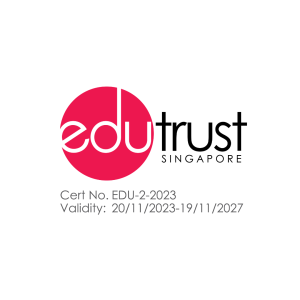Unit description
Communicating Global Issues
This unit articulates with a broad range of disciplines. It provides students with interdisciplinary perspectives on globalisation by addressing key socio-economic-cultural issues as identified by the United Nations, such as human trafficking, HIV/AIDS in developing and developed countries, and the economic effects of transnational corporations, which foregrounds the connections between gender and cultural politics.
Most importantly, it provides an opportunity for students to broaden their understanding of these issues and communicate their own responses.
Communication Research
Communication Research introduces students to some of the most commonly used research methods in the Social Sciences, including quantitative, qualitative and critical approaches. The unit offers new skills that assist students in developing conceptual thinking and progressing from knowledge consumption to knowledge production. These skills include acquiring and reviewing information literacy, discovering knowledge gaps, developing methodological frameworks and formulating research proposals. By the end of the semester, students should be able to demonstrate a sound knowledge of communication research and competently engage with scholarly research in the areas of Communication disciplines.
Global Media and Culture
This unit examines the relationship between global media and culture in relation to identity, media ownership, production, products, society and texts. We explore how all media can potentially be global media and the ways media technologies and texts impact culture and society.
We consider arguments related to free labour, homogenisation, overconsumption, the digital divide and trash culture. This unit casts a critical eye on contemporary culture with a particular emphasis on the role of globalisation and the media.
Introduction to Digital Media Skills
This unit introduces fundamental digital media production concepts and processes, providing students with basic skills in capturing, designing, editing and publishing a range of media for the web. It also explores the theoretical consequences of digital production processes, providing students with an understanding of the methods and issues of digital communication, including distribution and content management.
Media Audiences
This unit provides practical knowledge about how media audiences are measured, understood and analysed. It begins with a historical approach to audience theory then delves into media audience research, opinion polling and audience reach.
The unit examines theories used to explain audience behaviour including media effects, reception and fandom. It also critically explores experiences of the media as audience members, including broad social effects, how our interest in the media is shaped by various institutions and our individual responses to media texts.
Media Governance and Globalisation
This unit focuses on media governance and its relations to globalisation. It will examine policies and practices that govern and influence the creative industries, global media and public culture.
Students will learn about key media regulatory issues — including community standards, media literacies and Internet governance — and understand how these enable and constrain media, and cultural and social practices locally, regionally and globally. Topical case studies will be drawn from various global contexts for students to grasp policy discourses.
Social, Games and Mobile Media
This unit will focus on the rapid rise and cross-platform integration of social media, mobile media and games. It will consider the exponential growth of social networking, hand-held media interfaces and game platforms over the past decade, and critically explores their convergence in everyday cultural practice.
Students will be introduced to key approaches and concepts in the study of contemporary media culture and communication, and they will have the opportunity to gain an understanding of contemporary media production through a transmedia assessment task.
Specialist Communication
This unit explores professional communication as applied to a range of societal and practical contexts, including health and science. Students will explore the critical issues associated with the complexities of communicating in these industries from a local, national and global point of view, including the role of communication within indigenous issues in Australia.
Students will develop research and practical skills by working on real-life projects from within and outside of the University, and with industry and research experts.
Web Analytics and Digital Story Telling
This unit explores the societal and organisational applications of web data, including metrics and analytics, to myriad contexts. Students will be guided through the practical and theoretical aspects of planning, gathering, measuring, analysing and strategically using web data for a range of applications, including story telling.





